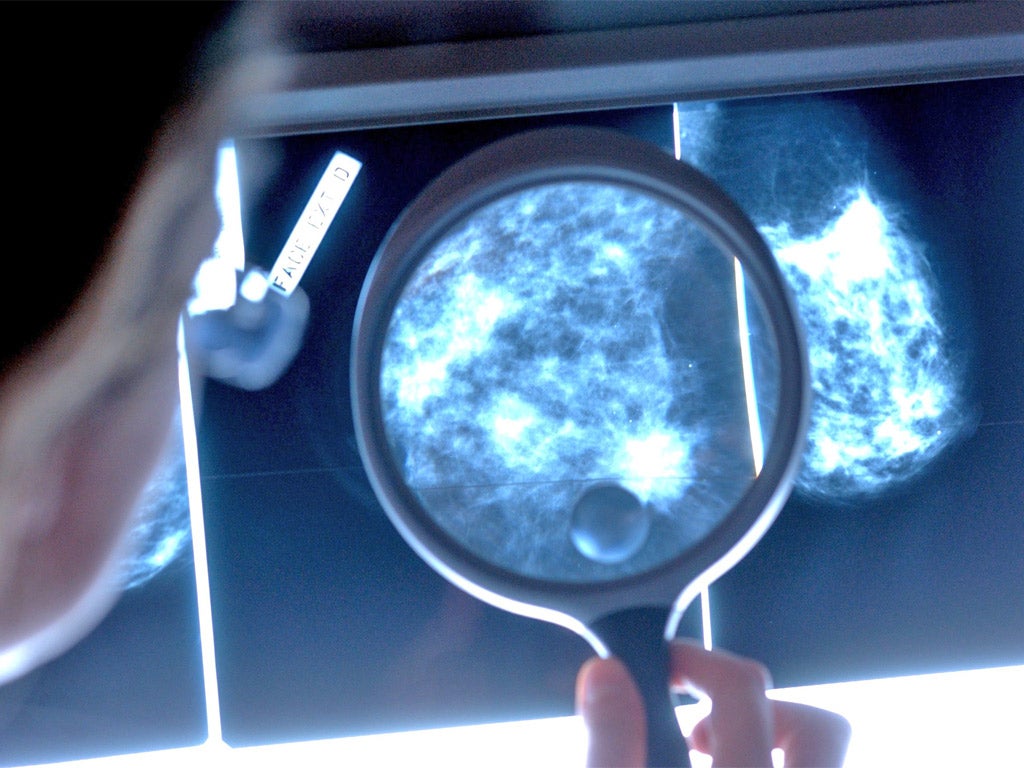New blood test could monitor how breast cancer spreads in multiple organs
‘The development of a blood test to continuously track how a patient’s cancer is changing and responding to treatment is an exciting step,’ says expert

A new blood test is able to monitor the spread of breast cancer in a number of organs and keep tabs on whether treatment is working.
The test, which has been created by scientists in the UK, can observe the growth of multiple tumours throughout the body by tracking the cancer’s molecular clock.
It was developed in the wake of fresh findings from an innovative rapid autopsy study funded by Breast Cancer Now.
Professor Andrea Sottoriva, of the Institute of Cancer Research, said: “Our study sheds light on two of the central challenges in cancer research and treatment — cancer’s lethal ability to adapt and evolve, and its tendency to spread outwards from the initial tumour to other parts of the body.
“The legacy study gave us a unique opportunity to analyse the genetic make-up of breast cancer after it has spread to multiple sites in the body, shedding new light on the course of cancer evolution. We also identified a brand new way of understanding how the tumour grows and evolves, through analysing ‘molecular clock’ signatures from cancer DNA in the blood.
“We hope to develop a blood test to monitor the evolution of an individual patient’s cancer, and in doing so, to offer hope of effective treatment even where there has been extensive cancer spread.”
Breast cancer is the most prevalent type of cancer in the UK — with 11,500 women dying from it every year.
There are thought to be roughly 35,000 people who currently have secondary breast cancer, which refers to breast cancer which has spread to a different area of the body and therefore becomes incurable.
But the new test, which scientists at the Institute of Cancer Research and the Royal Marsden NHS Foundation Trust think would both be very sensitive and fairly cheap, means keeping tabs on secondary breast cancer is easier than presumed.
Peter Barry, a consultant breast surgeon at the Royal Marsden in London who was involved in the study, said: “Clearly we need to expand this testing to a larger cohort of patients to see how widely applicable it might just be — in breast cancer patients as well as potentially in patients with other cancer types.”
Dr Simon Vincent, of Breast Cancer Now, urged anyone who is anxious about their breast cancer spreading to ring their free helpline on 0808 800 6000 where they will be able to speak to an expert nurse.
He said: “The development of a blood test to continuously track how a patient’s cancer is changing and responding to treatment is an exciting step towards being able to offer patients a more personalised treatment plan which could be readily adapted if a certain therapy is no longer effective.
“With 11,500 women and 85 men dying from breast cancer every year in the UK, we must find new ways to stop breast cancer from spreading, and to treat it effectively when it does.”
The UK’s largest breast cancer charity hopes that by 2050, every single person who is diagnosed with breast cancer will “live, and be supported to live well”.
The Independent previously reported almost 1 million women living in the UK have not been able to attend breast cancer screening appointments as a result of the coronavirus emergency.
Breast Cancer Now forecasts around 8,600 of the women ensnared in the backlog could have been living with breast cancer which has gone unidentified — with their diagnosis postponed due to the Covid-19 outbreak overwhelming NHS resources.
Join our commenting forum
Join thought-provoking conversations, follow other Independent readers and see their replies
Comments

Bookmark popover
Removed from bookmarks